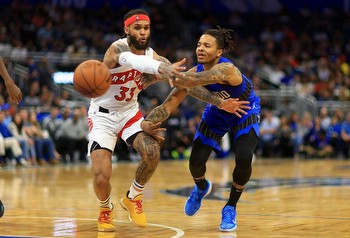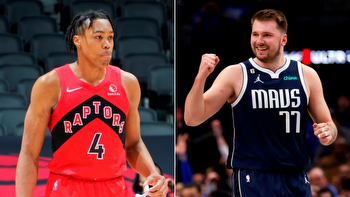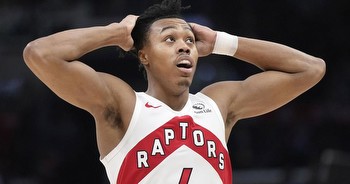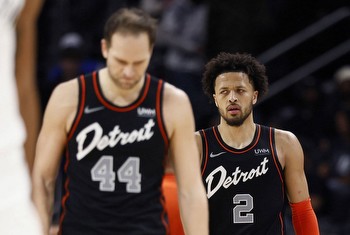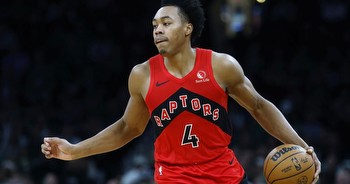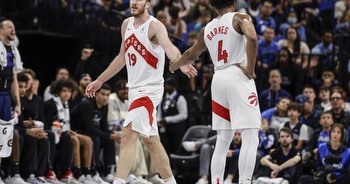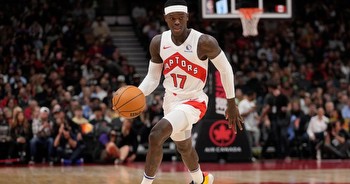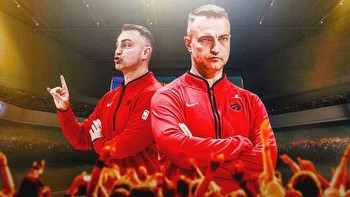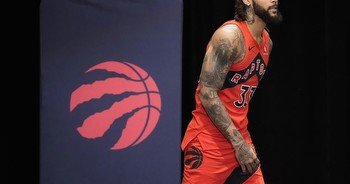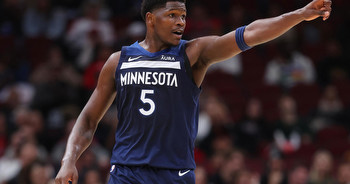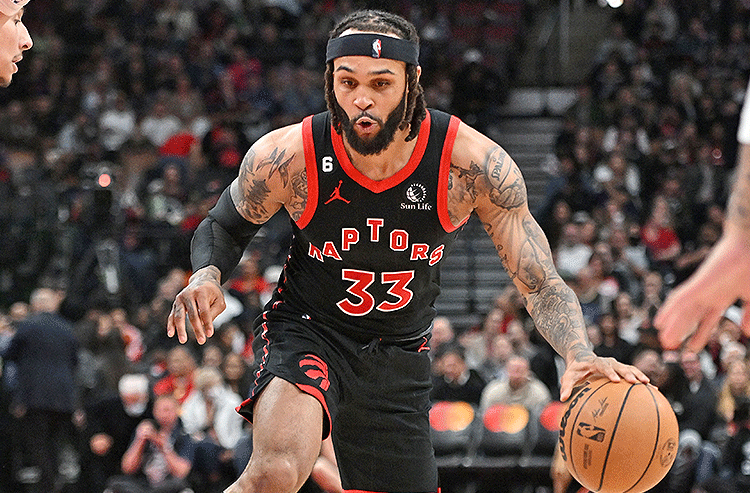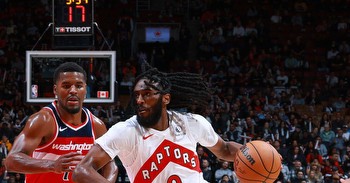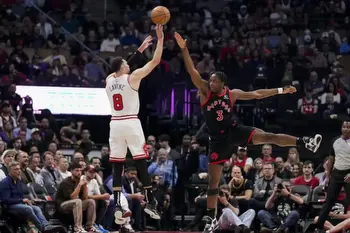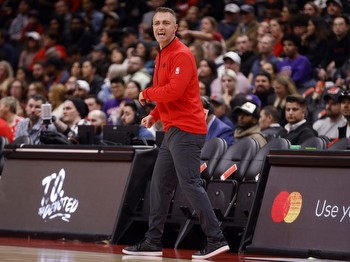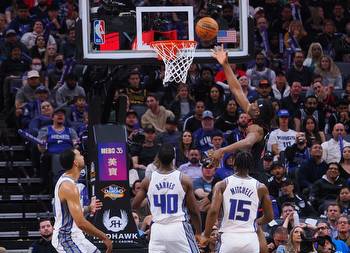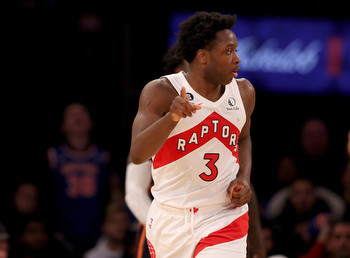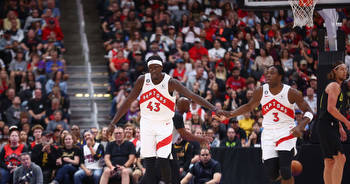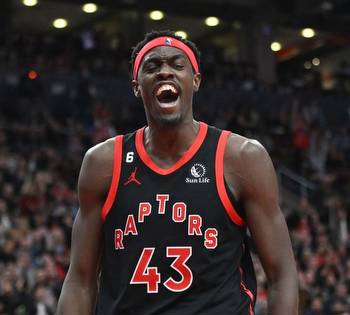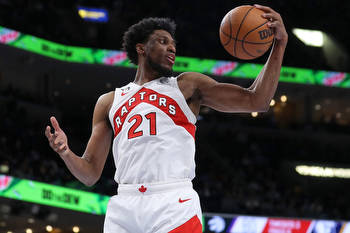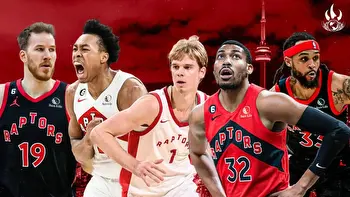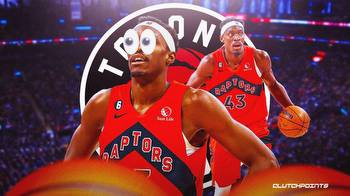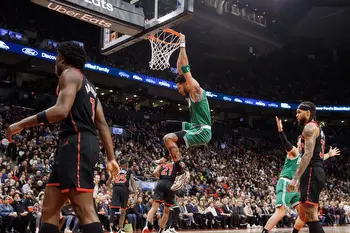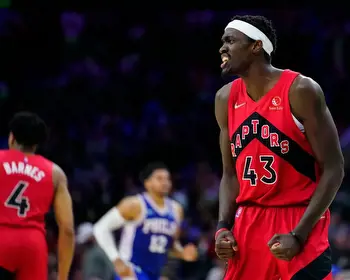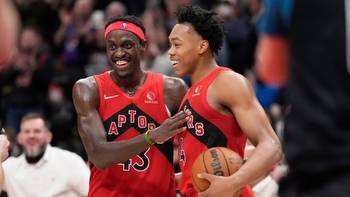Raptors win the day, and Rajakovic hopes next day is better
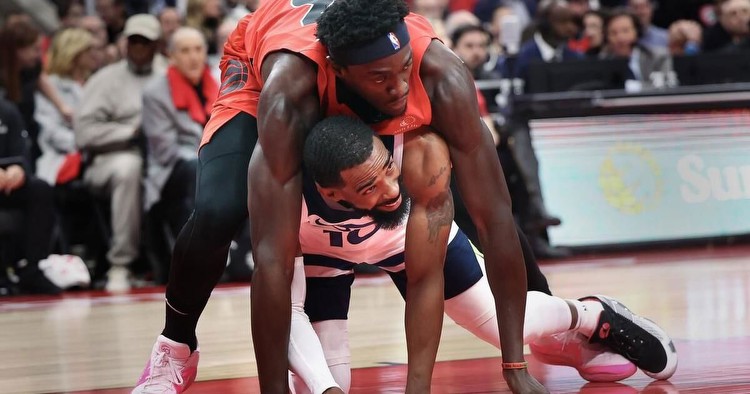
You could observe the change in Raptorland long before Wednesday’s season-opening tip.
Last year, when the club unveiled a grandiose new videoboard that ran the length of their Lakeshore Boulevard practice facility, there was one word that took up a chunk of the pixelated real estate: “WIN.”
A year later, as the Raptors wrapped up their final practice before the regular season, the messaging had been slightly but significantly amended.
“WIN THE DAY,” was the videoboard axiom.
If it sounded like a shift of the franchise’s focus, from nightly outcome to a daily development, newly installed head coach Darko Rajakovic acknowledged as much in the lead-up to Wednesday’s game, when he was asked to define his vision of a successful season.
“It's not necessarily just (the) numbers of wins and losses,” he said.
Say what? Lest we confuse the rookie NBA bench boss with a house-league T-ball coach just hoping the kids have fun, Rajakovic quickly added that wins and losses, in the binary world of pro sports, “are extremely important.” Some would say vitally so.
Make no mistake: The coach was clearly thrilled that his first game running an NBA bench ended in a 97-94 Toronto victory over the Minnesota Timberwolves, complete with a celebratory locker-room dousing from his raucous players.
“No champagne,” Rajakovic said. “A lot of ice water.”
So if it’s not just about the wins, with 82-0 still within reach, what’s it all about?
“It's about standard of play,” Rajakovic said before the game. “Did we take good (shots)? Did we play defence the way we had our game plan? It's about that.”
In other words. Out with: “Just win, baby.” Welcome to: “Trust the process.” Out with championship-winning Nick Nurse playing the shortest rotation in the NBA trying to scrounge out every victory. In with Toronto’s Darko era.
For one game, at least, it looked decidedly different. The team labelled last season as “selfish” by team president Masai Ujiri, the team that finished 26th in assist percentage and often relied on one-on-one isolation play, seemed committed to sharing the ball out of the gate. Twenty-seven of Toronto’s 36 field goals were assisted on Wednesday. That’s a 75 per cent rate, a quantum leap from last year’s nightly average of 59 per cent.
“We’ve got to continue trusting the pass,” Rajakovic said. “Trust the pass, trust togetherness.”
In a related story, the team that ranked 28th in three-point percentage last season, at a dismal 32 per cent, made 40 per cent of its attempts from deep. Rajakovic said the ball-movement-focused offensive system he is implementing is only in the infancy of its implementation, given the truncated nature of an NBA training camp.
“We were very careful how much we were putting on the plate of our players,” he said. “It's been only like three weeks that we are working together — some 14, 15 practices, four pre-season games. Not all (of it) is in. But stuff that we're putting in, we're very diligent. We believe that those are our core, core things.”
Four years removed from raising a championship banner, the Raptors find themselves at a confounding crossroads. Clearly not good enough to contend for a championship, yet apparently not interested in an old-school tank job, the club seems willing to give this iteration of the roster one more season to show its potential. From here to there, there are big decisions to be made, including the long-term futures of contract-year regulars Pascal Siakam, O.G. Anunoby and Gary Trent Jr.
It isn’t lost on anyone that, apart from Fred VanVleet’s free-agent departure to Houston, not much has fundamentally changed about last year’s roster. A lot of faith has been placed in the power of Rajakovic’s positive messaging, which has stressed the importance of team chemistry and “togetherness.” If those are mere words, certainly Rajakovic’s leash with players figures to be longer than that of Nurse, who was known for burying underperformers for games at a time.
“I don't foresee that, after one bad performance, we're going to get guys out of the rotation,” Rajakovic said. “I think that's not fair.”
Rajakovic vowed to play a 10-man rotation. He went 10 deep before the first half was over. One of the questions of the season, of course, is whether or not there’s anybody on the bench actually worth playing? Game 1 will have count as a mulligan. Toronto’s reserves, though they played the fewest minutes in the league under Nurse, averaged 28 points a game last season. They combined for a lacklustre 16 Wednesday. The likes of Chris Boucher, Otto Porter Jr. and Thad Young did not play.
At least Pascal Siakam, who was run into the ground leading the NBA in minutes per game the previous two seasons, averaging nearly 38 minutes, got a few extra minutes of rest. On an off shooting night in which he scored 15 points on 17 shots — new point guard Dennis Schroder led the way with 22 points — Siakam played 34 minutes.
And as for the defence, the Raptors still have the impressive mix of length and physicality, but with less of the Nurse-mandated “fly-around” approach designed to force turnovers and create easy buckets on the fast break.
Said Minnesota coach Chris Finch of the Raptors: “Yeah, it looks like they have been able to maintain a lot of their aggressiveness with maybe a little less flying around and a little more conservative (approach) on the defensive end while still maintaining that physicality and defensive length and being able to turn you over.”
The Raptors got out and ran plenty on opening night, holding Minnesota to 34 per cent shooting from the field and outscoring the visitors 34-12 on the fast break. It was one game, one win. But compared to what Raptors fans watched last season, it looked like something we haven’t seen before.
The goal, Rajakovic said, is to keep progressing as the season does. Whether or not it will lead to as many wins as the Raptors might have piled up playing another year under Nurse — that’s not necessarily the point. The point is management wanted to see Toronto’s best players play a little less and its bench players play a lot more, for better or worse, day by day.
“My dream is that we play our best basketball at the end of the year,” Rajakovic said. “So we continue to grow as the season (progresses).”

